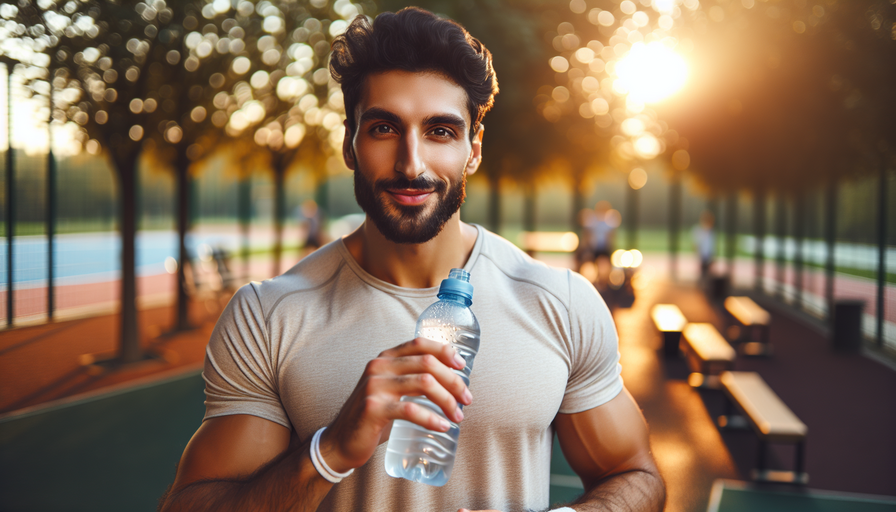From Water to Winning: Understanding the Relationship Between Sports and Hydration
Published:

Achieving athletic excellence isn't just about rigorous training and talent; hydration plays a pivotal role in bridging the gap between performance and victory. Consider this: even a 2% drop in body weight due to dehydration can significantly impair physical performance. So, what exactly is the magic concoction in your water bottle that influences so much of your success on the field? Let’s delve into the vital relationship between hydration and sports performance.
The Science of Hydration in Sports
Efficient hydration is crucial for optimum muscle function, energy production, and endurance. When you engage in physical activities, your body loses water through sweat. This loss needs to be balanced to maintain performance levels and avoid fatigue. The primary components of athletic hydration include:
- Electrolyte Balance: Sodium, potassium, and chloride are essential for muscle contractions and nerve functions. Inadequate levels can result in cramps and reduce your ability to endure long workouts.
- Thermoregulation: Water serves as your body's internal air conditioner, keeping your core temperature regulated even as your environment or activity level changes. Without proper hydration, your body struggles to maintain its temperature, leading to overheating and exhaustion.
- Nutrient Delivery and Waste Removal: Water facilitates the efficient transport of nutrients to your muscles and helps in the removal of metabolic byproducts.
Optimal Hydration Strategies
Achieving a balance between water intake and loss is key to sustaining high performance. Here are some strategies to maintain optimal hydration levels:
Pre-Hydration: Begin drinking water at least 3-4 hours before exercise, around 17-20 ounces, to ensure your body is well-hydrated before you start losing water via sweat.
Continuous Sipping: Instead of guzzling lots of water at once, aim to sip gradually. Ideally, drink 7-10 ounces every 10-20 minutes during exercise to keep hydration levels steady.
Post-Exercise Replenishment: After exercise, aim to consume at least 16-24 ounces for every pound lost during the workout to help the body recover.
Highlighting these strategies helps emphasize the necessity of hydration not just for fitness but for overall health and wellness.
Implementing Hydration Habits
Incorporating hydration into your daily routine extends beyond athletic performance; it supports cognitive functions and general well-being. Here are some expert-backed tips to build sustainable hydration habits:
Hydration Reminders: Use technology to track and remind yourself of water intake. Mobile apps can alert you to drink at regular intervals, aiming for an overall daily target.
Flavor Infusion: If plain water isn't appealing, infuse it with fruits like lemon or cucumber to make it more enjoyable.
Accessible Water: Keep a bottle within reach at all times, whether at work, home, or while commuting, ensuring you remain hydrated effortlessly.
By consistently practicing these tips, you not only boost your physical performance but also support vital body functions, leading to a healthier lifestyle.
Conclusion
The road from hydration to victory is paved with intentional habits and mindful practices. By understanding and implementing effective hydration strategies, athletes can unlock a higher level of performance, resilience, and recovery. Optimizing your athletic potential is just a sip away. Remember, consistent and mindful hydration is your key to both everyday wellness and athletic success. Track your hydration goals easily with tools designed for efficiency. Download Sulak here and start making hydration a non-negotiable part of your training routine.